
Galina’s Facemasks – how a woman from an IDP Settlement made hundreds of facemasks for villages near the administrative border line
Seventy kilometers from Tbilisi, on the right side of the road in the village of Shavshvebi stands an IDP settlement – home to about 780 IDPs for 13 years since the August War. For those 13 years, an ethnic Ossetian woman from the Greater Liakhvi Gorge has been living here – she knows everybody in the settlement and is well aware of each family’s worries.
Galina (Natela) was born and raised in a small town of Java, 22 km from Tskhinvali, and then married Levan Otinashvili from the village Kemerti, in the Greater Liakhvi Gorge.
Galina is also known by another name. After graduating from school, at the age of 16, she discovered that another name, Natela, was written on her birth certificate. So both names were retained – Galina Natela.
Galina had been teaching German at a school in the Greater Liakhvi Gorge for 25 years, living peacefully in her homeland with her husband, children, and grandchildren until August 2008, when the bombardments turned her world upside down.
Together with her husband, her two children and three grandchildren, Galina moved to the Shavshvebi Settlement. She had to start everything from scratch, but despite this harsh reality, she did not give in, and her accomplishments attracted NGOs attention. Galina built up close relations with local NGOs, and engaged in work that was useful for her community.
“I attended various trainings, gained knowledge and started to write projects even though I did not understand a single word of Georgian before my marriage,” Galina recalls.
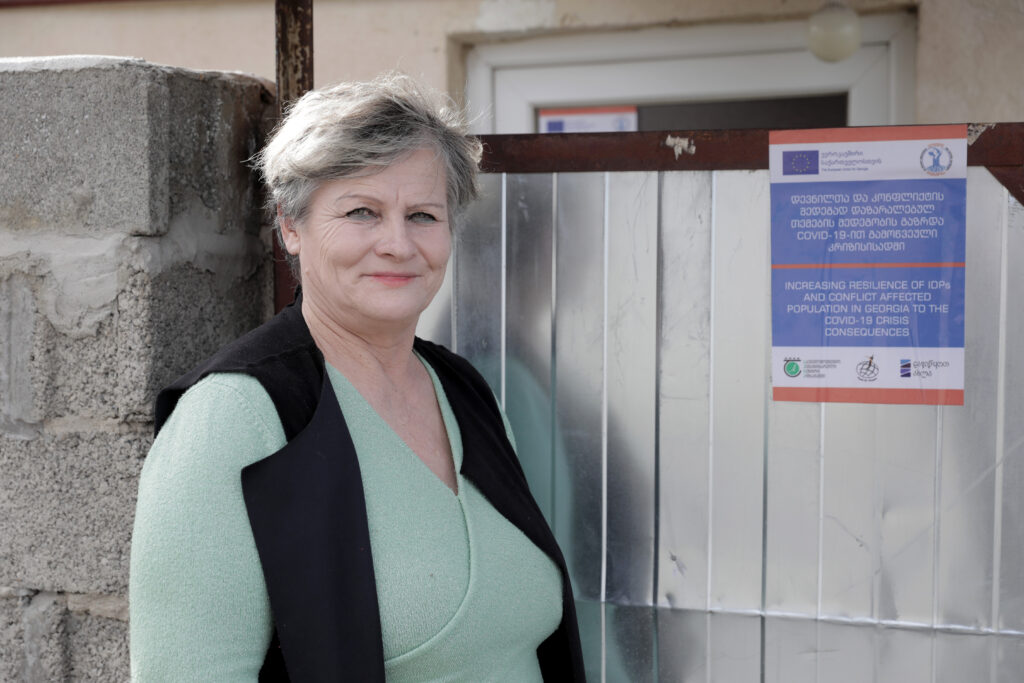 Galina Natela Kelekhsaeva at her workshop, Shavshvebi Settlement
Galina Natela Kelekhsaeva at her workshop, Shavshvebi Settlement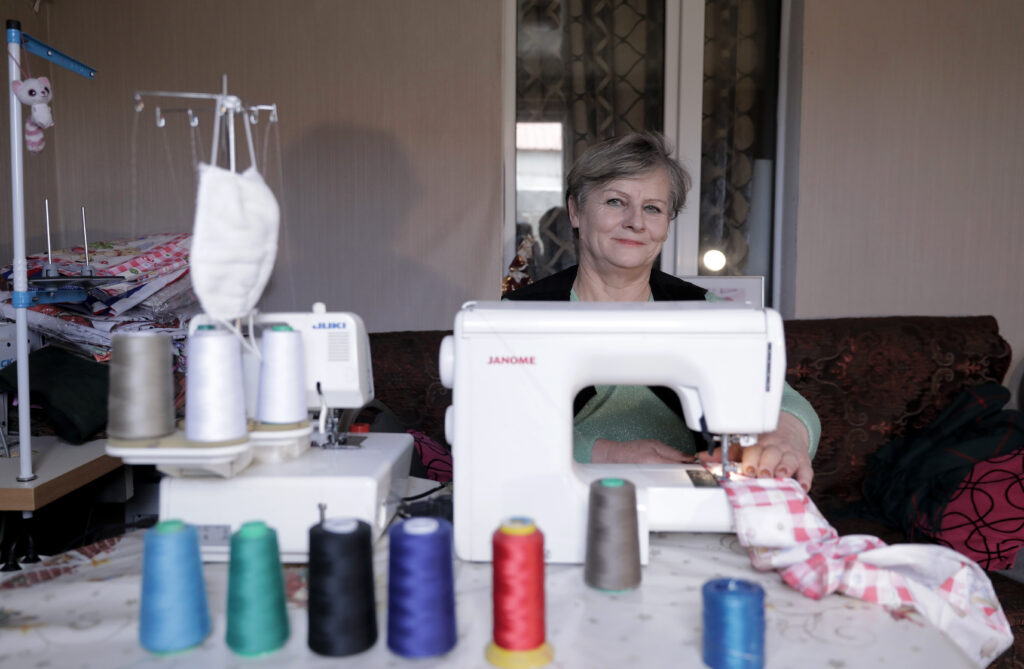 Galina Natela at the sewing machine
Galina Natela at the sewing machine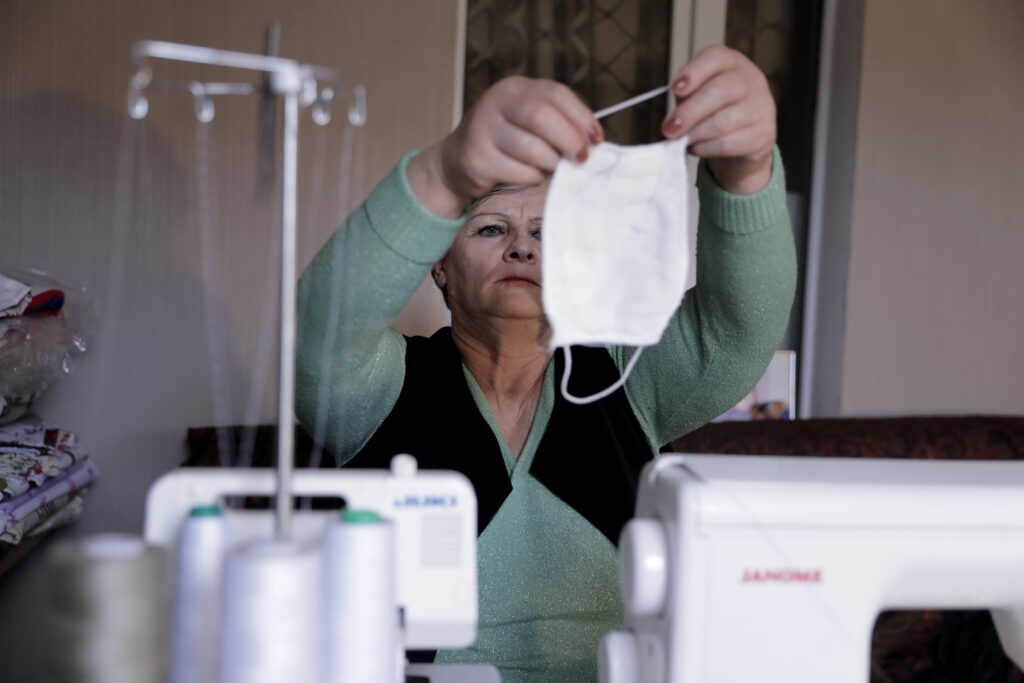 Galina Natela sewing the face masks
Galina Natela sewing the face masks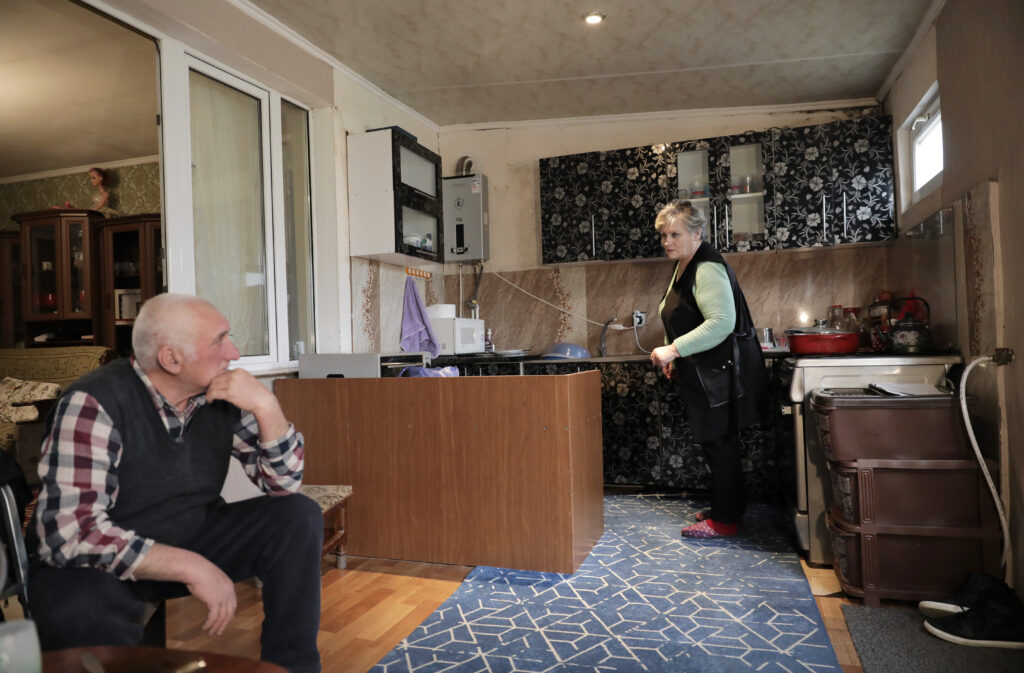 Galina Natela with her husband Levan Otinashvili
Galina Natela with her husband Levan Otinashvili
Galina Kelekhsaeva, teacher of German language, never thought she would find herself sitting at a sewing machine, because she had no aptitude for the job, as she explains. She certainly did not imagine she would start sewing facemasks.
Galina began this new task soon after the start of Covid-19 pandemic, after receiving a phone call from the IDP Women Association ‘Consent’: “Galochka, let’s start sewing facemasks,” was the invitation. Her answer was “yes”, because willingness means everything. This is how the 61-year-old woman started working with the ‘Consent’ Association, under a project supported by the ‘Bread for the World’ organisation, which continued with EU financial support. Galina says the financing and the idea were well-timed.
Apart from the necessary funding, Galina also received materials purchased with EU support under the project ‘Increasing Resilience of IDPs and conflict affected population in Georgia to the COVID-19 crisis consequences’. She also gave jobs to three women in a workshop set up in her house.
“I surfed the Internet and learned very quickly how to sew the facemasks, learned about their length and width in centimeters. Social networks help you find whatever you are interested in. Until then, I used to sew different types of bed linen with the support of ‘Consent’, the Farmers’ Association and Elkana. I had no experience of making facemasks,” said Galina.
The ‘Consent’ Association believes in the importance of economic empowerment of women. It adapts EU-funded projects to women’s needs, as women know best of all about community needs. The conflict-affected women can approach the association with ideas to resolve problems in their own communities.
Women made hundreds of multiple-use facemasks a week in Galina’s workshop. They made them observing the recommendations of the Ministry of Health, and distributed the masks for free to the locals and the population of villages along the administrative border line.
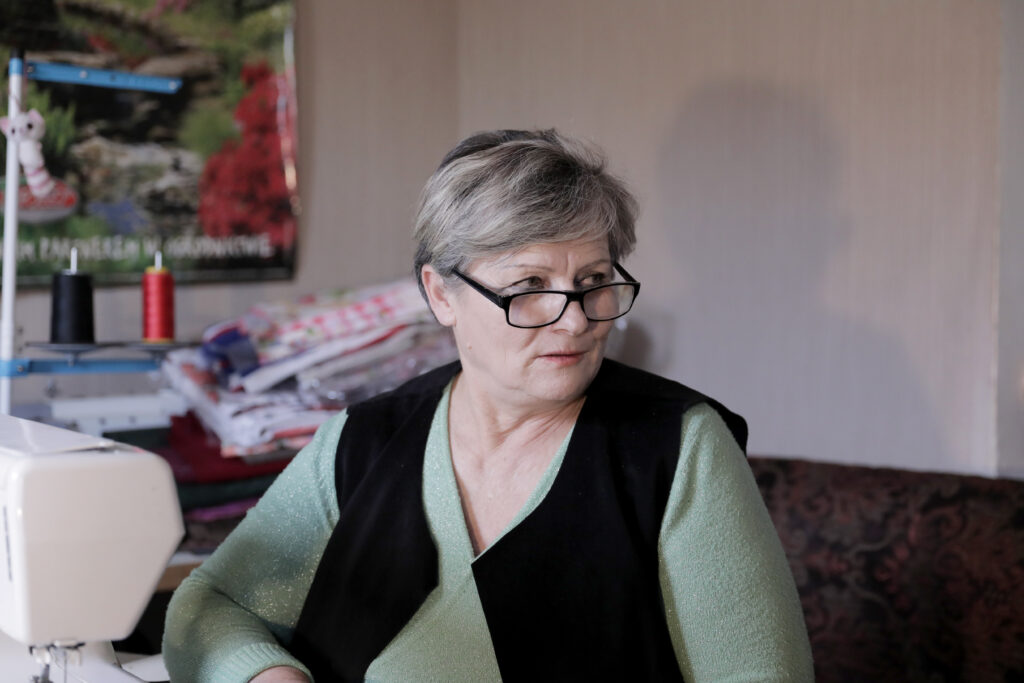 Galina Natela at her sewing workshop
Galina Natela at her sewing workshop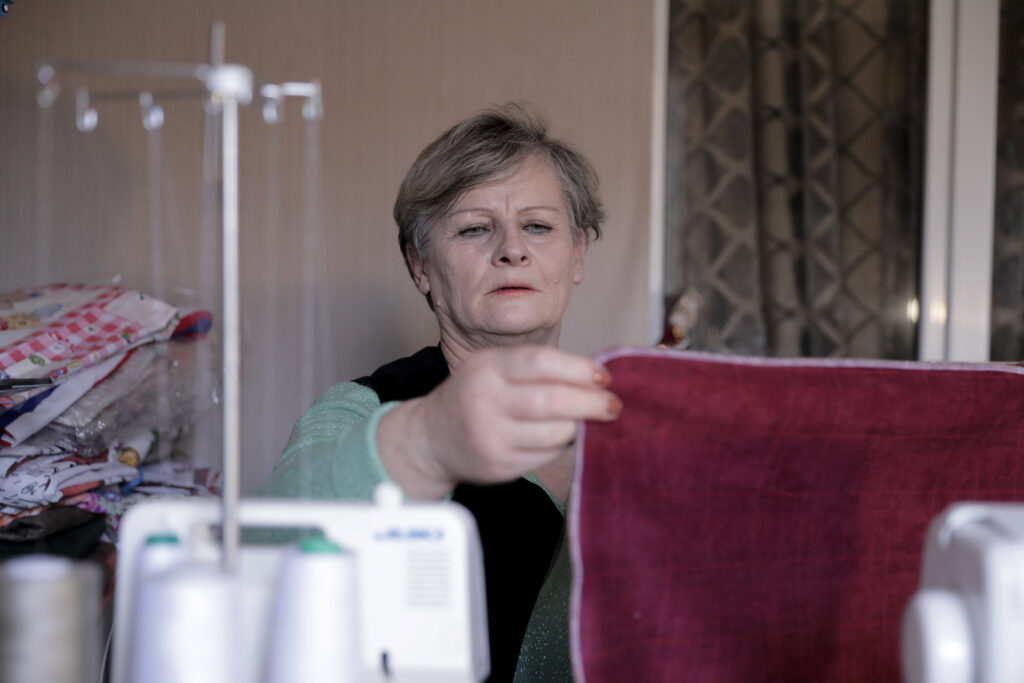 Galina Natela measuring the fabric during process of sewing linen
Galina Natela measuring the fabric during process of sewing linen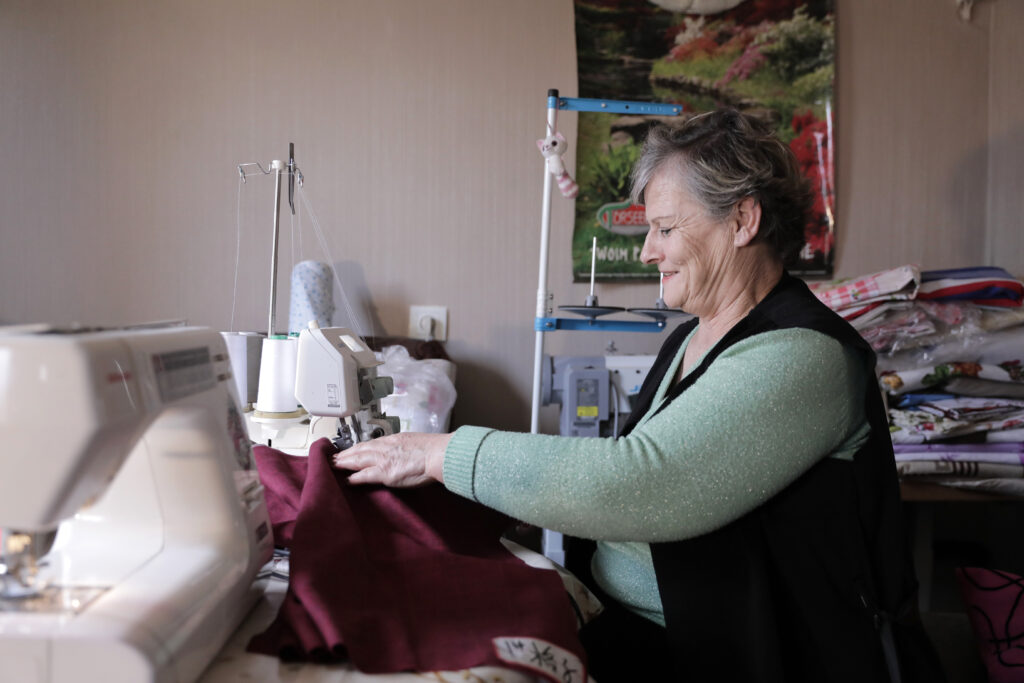 Galina Natela sewing linen
Galina Natela sewing linen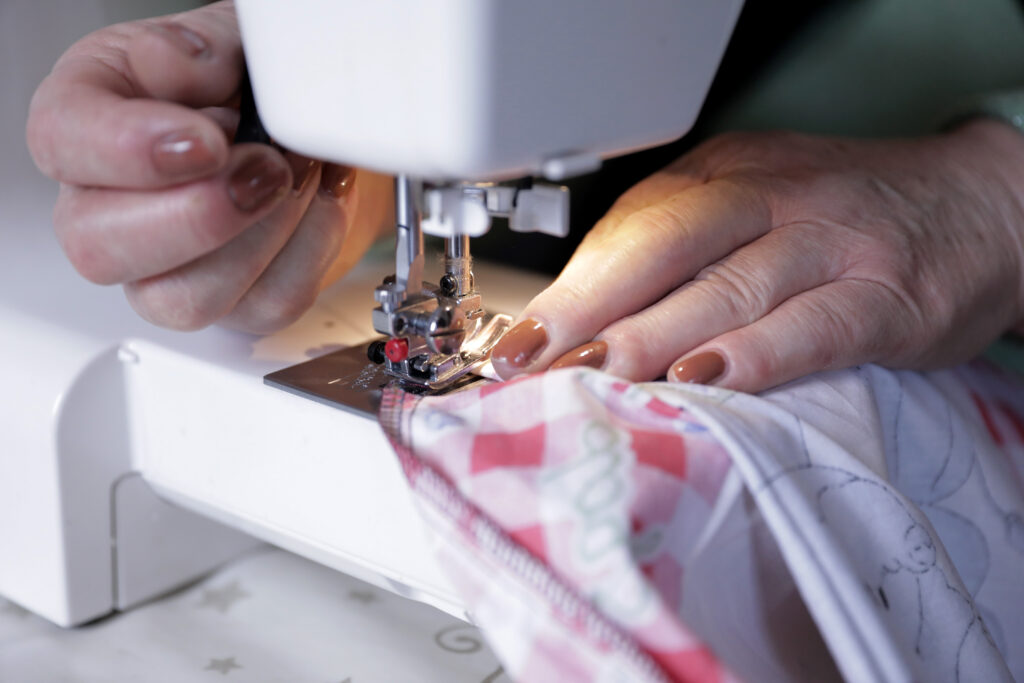 Galina Natela sewing linen
Galina Natela sewing linen
At a time when there was a shortage of facemasks, even in the pharmacies, when they were expensive and when movements were restricted, Galina distributed the gauze facemasks to the population, all the time maintaining social distancing.
“Some wanted to pay but I could not imagine charging money,” said Galina. “I have not taken a single tetri. In this process I mostly enjoyed noticing people’s astonished faces. Love for people should be an inherent trait of human beings. The best thing is being kind to people who are in trouble and look at you amazed, as if asking for help, especially when you can support them and do them a favour. I always carry the facemasks in my pocket and distribute them to the people who wear worn out ones.”
She recalls especially delivering facemasks and Christmas presents to the families living near the Khurvaleti boundary line, because her house is beyond the barbed wire too. Her facemasks reached Grandpa Data, who had been detained repeatedly for communicating with visitors at the administrative border line. Data Vanishvili’s health is poor, so the masks and Christmas gifts were handed to his wife.
Galina’s facemasks soon became popular. She explains this by the quality, and her whole-hearted work. During the Covid-19 crisis, the project donated facemasks to about 1,000 people. Apart from the facemasks, Galina has also been making bed linen with EU support, and distributing them for free to conflict-affected families.
Today, she is considering the commercial production of medical facemasks, but she faces an emerging problem – the pandemic has led to an increase in the price of raw materials, as well as other products, and for the moment she has to hold back from her idea. Nonetheless, she has had requests from the local population, including the nearby villages and Gori. There was also demand for her facemasks in Rustavi, and she has her many loyal customers.
Sewing is not the only job that Galina does. She is a director of the Settlement Kindergarten built by her initiative in 2016 with the co-financing of NGOs and the Gori Mayor’s Office. There was no kindergarten in the IDP Settlement until then, and children had to travel a long way to go to pre-school. Currently, the kindergarten cares for 25 children.
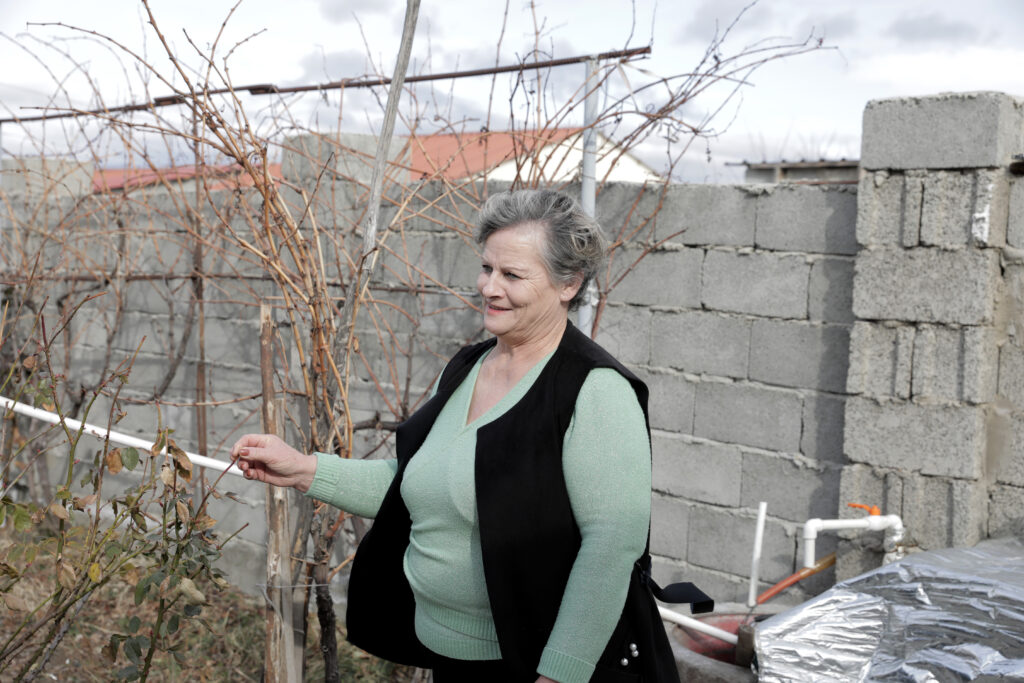 Galina Natela in Shavshvebi Settlement
Galina Natela in Shavshvebi Settlement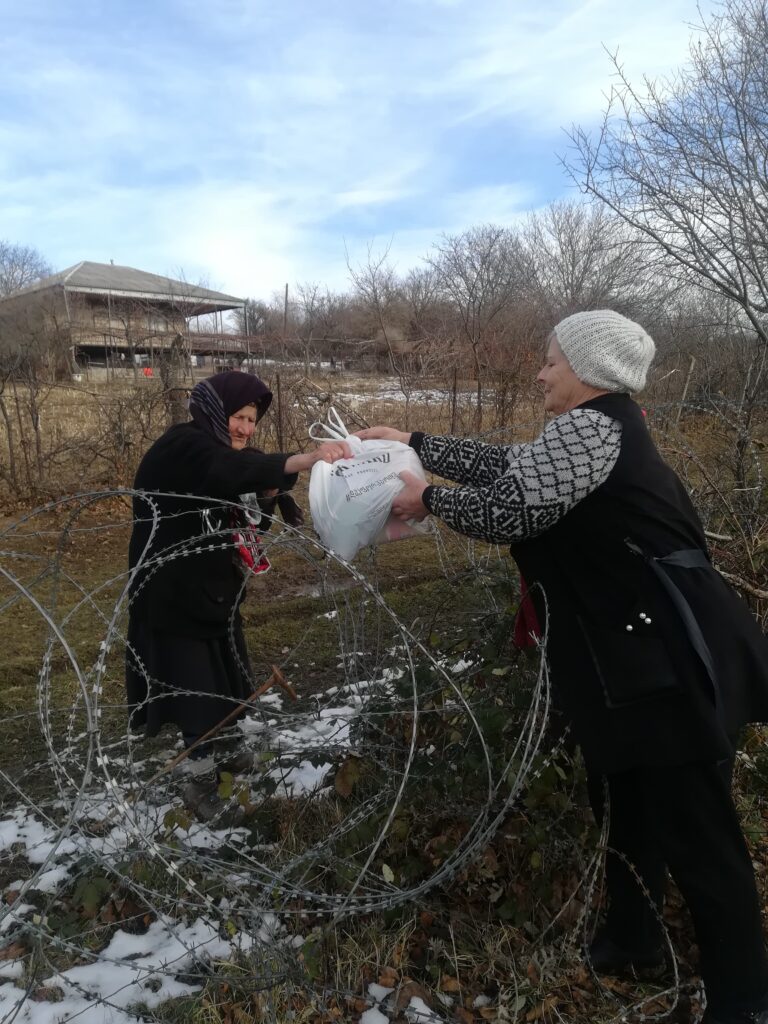 Galina Natela handing over masks to the people living near administrative border line
Galina Natela handing over masks to the people living near administrative border line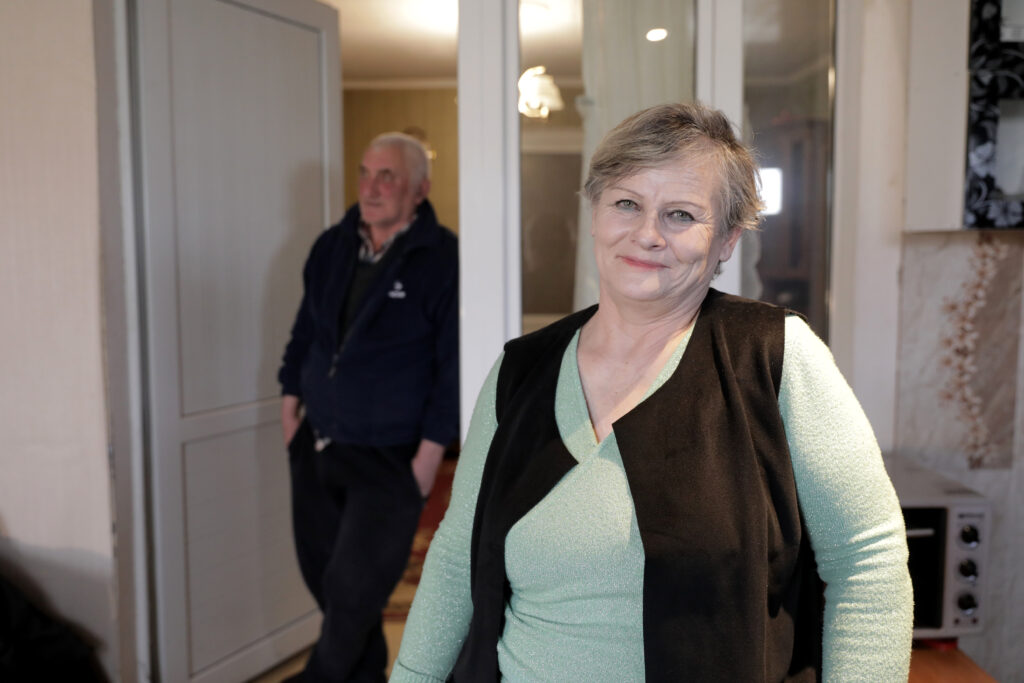 Galina Natela with her husband Levan Otinashvili
Galina Natela with her husband Levan Otinashvili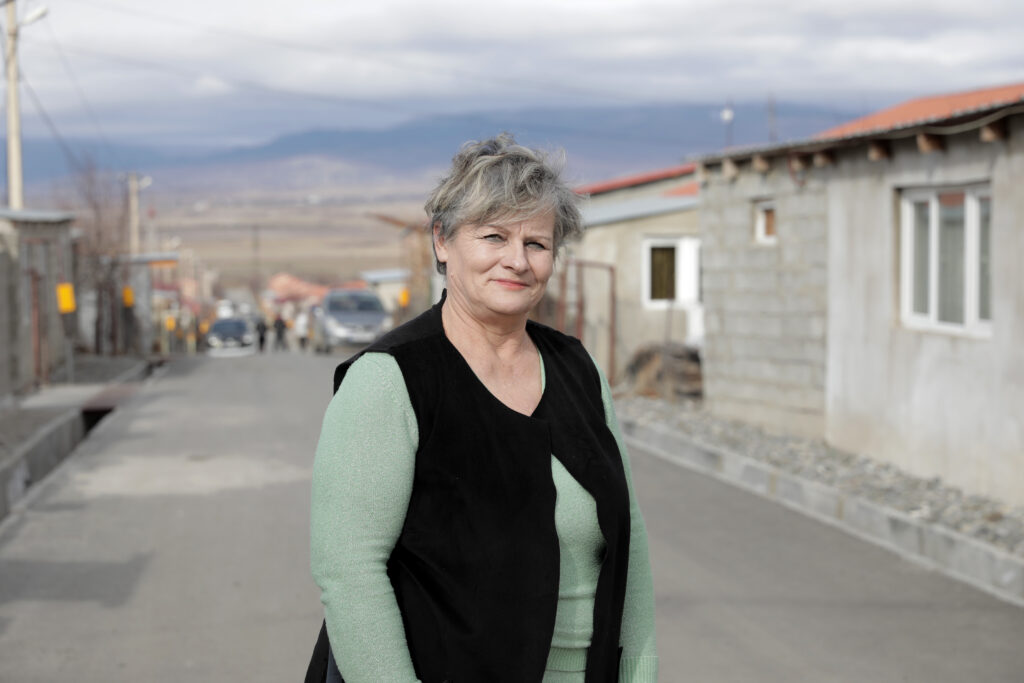 Galina Natela in front of her house in Shavshvebi Settlement
Galina Natela in front of her house in Shavshvebi Settlement
With the EU’s financial support, Galina has also implemented other projects in the IDP Settlement, including a Youth Club supporting local young people to tackle existing problems.
Big plans are ahead. Galina has lots of ideas to solve problems and carry out various other activities. She hopes she will always have the energy for undertakings that are important to the community.
Author: Lana Kokaia
Article published in Georgian by On.ge
MOST READ
SEE ALSO

No, time is not on Russia‘s side
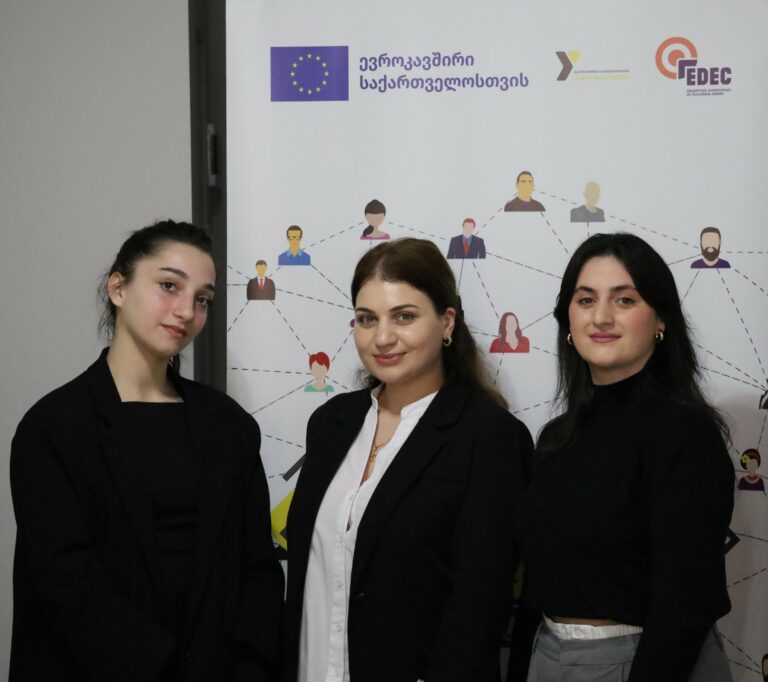
A hands-on approach to boost youth employment in Georgia
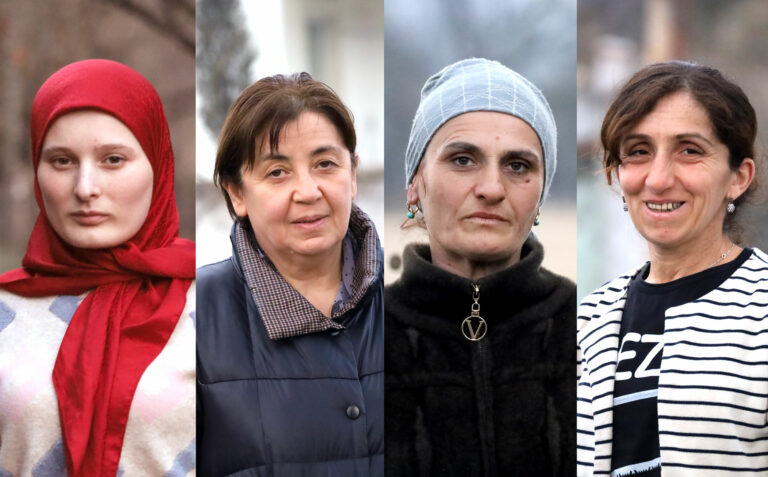
Taking health into their own hands: women’s empowerment in the remote villages of Georgia
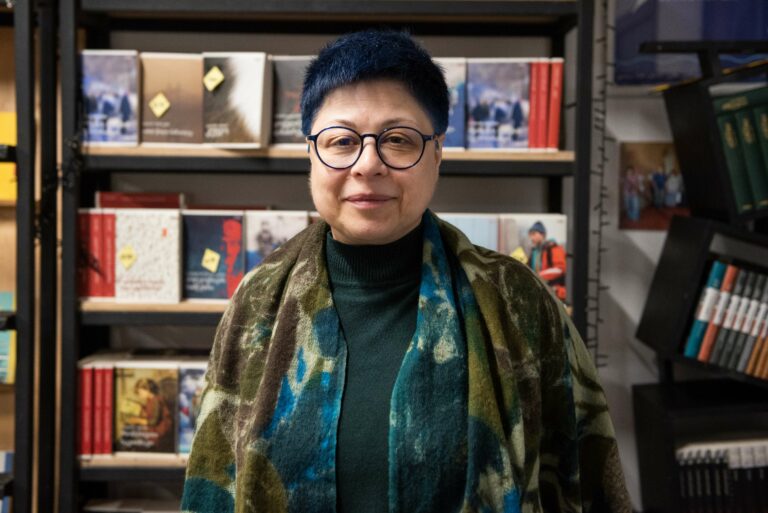
A woman publisher in a male-dominated industry – the path to a big dream

Be one step ahead of a hacker: check simple cybersecurity tips!
More campaign pages:
Interested in the latest news and opportunities?
This website is managed by the EU-funded Regional Communication Programme for the Eastern Neighbourhood ('EU NEIGHBOURS east’), which complements and supports the communication of the Delegations of the European Union in the Eastern partner countries, and works under the guidance of the European Commission’s Directorate-General for Neighbourhood Policy and Enlargement Negotiations, and the European External Action Service. EU NEIGHBOURS east is implemented by a GOPA PACE-led consortium. It is part of the larger Neighbourhood Communication Programme (2020-2024) for the EU's Eastern and Southern Neighbourhood, which also includes 'EU NEIGHBOURS south’ project that runs the EU Neighbours portal.

The information on this site is subject to a Disclaimer and Protection of personal data. © European Union,







